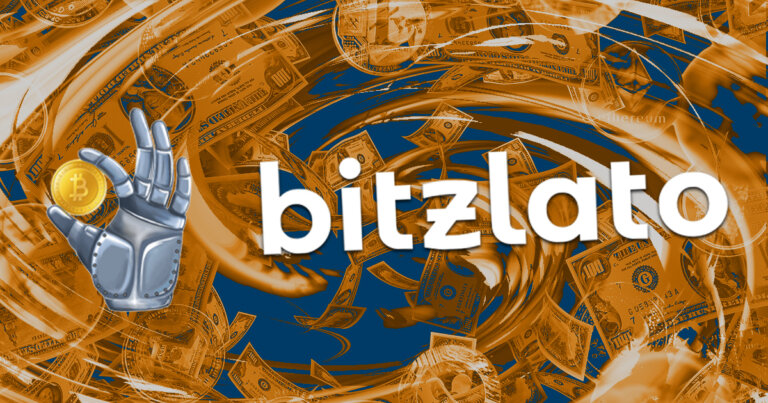 A look at what’s going on with Bitzlato and its impact
A look at what’s going on with Bitzlato and its impact A look at what’s going on with Bitzlato and its impact
Accused of laundering over $1 billion worth of crypto, the Russian exchange saw its owner arrested and assets seized. And while the scope of Bitzlato's alleged crimes is serious, its effect on the crypto industry could be limited.

Cover art/illustration via CryptoSlate. Image includes combined content which may include AI-generated content.
A cryptocurrency exchange registered in Hong Kong, Bitzlato has mostly remained under the radar since its inception in 2016. The exchange managed to avoid any significant media exposure and kept a low profile aside from a brief mention in a 2022 Chainalysis report.
That was until Jan. 18, 2023, when the U.S. Department of Justice (DOJ) announced a high-profile enforcement action against the exchange. The same day, its founder Anatoly Legkodymov was arrested in Miami and charged with running an unregistered money-transmitting service.
Mainstream media was quickly flooded by news about the size and scope of Bitzlato’s illicit activity. Reports about the exchange’s deep connections to Russian hacker groups and darknet markets surfaced, leading many to wonder about the consequences this enforcement action could have on the industry.
If the allegations against Bitzlato are correct, the exchange and its owners could face charges for laundering over $1 billion worth of cryptocurrencies. And while the scope of Bitzlato’s crimes might be significant, the exchange’s effect on the broader crypto market will most likely be minimal.
A brief history of Bitzlato
Russia’s invasion of Ukraine triggered an unprecedented enforcement effort against the country. Russia became the target of some of the most aggressive economic sanctions ever seen, with its banks, companies, and citizens seeing their funds seized or frozen. Russia’s central bank saw its entire $630 billion reserves held in the U.S. immobilized, pushing its inflation to historical highs.
As restrictions tightened, law enforcement agencies worldwide began worrying about Russia’s ability to use cryptocurrencies to evade sanctions. According to a Chainalysis report from 2022, Russia accounted for a disproportionately large share of crypto-based crime and was believed to be the home to many crypto services suspected of money laundering.
However, an analysis of cryptocurrency transfers to and from Russia found no evidence of large-scale money laundering. While a notable amount of cryptocurrencies were transferred from Russia to various crypto platforms abroad, research showed that the transfers were small and ultimately insignificant.
Bitzlato received a brief mention in the Chainalysis report as one of a few “high-risk exchanges” that received significant transfers from Russia-based users in 2022. The report showed Bitzlato ranked second with around $600 million received, behind Garantex.io, which reportedly received over $1.5 billion in transfers from users in Russia.
The report, published on Mar. 28, 2022, was among the last times the exchange got any major press until news about its founder being arrested surfaced on Jan. 17, 2023.
The U.S. Department of Justice (DOJ) announced that it had arrested Anatoly Legkodymov, the co-founder and senior executive of Bitzlato. The 40-year-old Russian national is the company’s majority shareholder and is accused of operating an unlicensed money-transmitting business.
At the same time, the DOJ announced a major enforcement action against Bitzlato. The DOJ’s enforcement letter notes the exchange has been one of the biggest counterparties to darknet marketplace Hydra. Bitzlato was also accused of acting as a primary money laundering route for Russian ransomware groups.
“Bitzlato plays a critical role in facilitating transactions for the Conti ransomware group and other global ransomware actors, including actors that operate out of Russia,” the DOJ noted in the enforcement letter.
Aside from the notorious Conti group, Bitzlato has reportedly been involved with Chatex, DarkSlide, and Phobos, all high-profile ransomware groups believed to be based in Russia.
“In addition to receiving ransomware proceeds, Bitzlato’s receiving and sending transactional activity shows a significant connection to counterparties associated with other suspected illicit activities, such as darknet markets and scams with ties to and operations in Russia.”
The DOJ’s investigation showed approximately two-thirds of Bitzlato’s top receiving and sending counterparties were associated with darknet markets or scams. The exchange’s top three receiving counterparties between May 2018 and September 2022 were Binance, Hydra, a darknet market catering to Russian users, and TheFiniko, a Russian Ponzi scheme. Its top three sending counterparts were Hydra, LocalBitcoins, and TheFiniko.
An FBI investigation into Legkodymov found that Hydra users sent around $170 million worth of crypto to Bitzlato between May 2018 and April 2022, when the darknet marketplace was closed. Hydra users withdrew $124.4 million from Bitzlato accounts and an additional $191.9 million from sources funded by Bitzlato. The exchange also received more than $15 million worth of crypto from ransomware groups.
The FBI investigation showed that Bitzlato’s employees knew and encouraged transfers to and from Hydra, with recovered customer service chats showing employees giving users clear instructions on how to launder “dirty tokens” and top up their wallets on the darknet market. Employees were also aware of users opening accounts with others’ credentials.
Legkodymov and other senior managers at the exchange knew that most of Bitzlato’s trading volume came from criminal funds. Messages recovered from an internal chat with Bitzlato executives showed they decided that blocking users connected to the drug trade wouldn’t be good for the exchange “from a business point of view.”
A blow to Bitzlato is not a blow to crypto
The FBI has been investigating Legkodymov and Bitzlato for over a year. The onset of the sanctions against Russia turbocharged the investigation, quickly finding that Bitzlato’s crimes’ scope surpassed Russia’s borders.
According to a deposition from an agent involved in the investigation, Bitzlato has been conducting business in a “substantial part” of the U.S. Evidence collected in the investigation showed that Bitzlato and its executives were aware of servicing U.S. customers and that Legkodymov managed the exchange while in the U.S.
Following Legkodymov’s arrest in Miami on Jan. 17, the DOJ issued a statement saying that crypto companies and their owners were not above the law or beyond their reach.
“Today the Department of Justice dealt a significant blow to the crypto crime ecosystem,” Deputy Attorney General Lisa Monaco said.
“Today’s actions send the clear message: whether you break our laws from China or Europe—or abuse our financial system from a tropical island—you can expect to answer for your crimes inside a United States courtroom.”
Overnight, the once-obscure exchange became one of the biggest talking points in the crypto industry. The scope of Bitzlato’s alleged crimes made it an easy target for lawmakers in the U.S. fighting for stricter regulation of the market.
A Chainalysis report found that around 26% of all the cryptocurrencies Bitzlato received from 2019 to 2023 came from illicit sources, while another 27% came from “risky sources.” With the exchange processing around $2.5 billion worth of cryptocurrencies, it faces charges for laundering at least $650 million.
Many argue a high-profile enforcement action could hinder the development of the crypto industry in the U.S. Big industry players in the country have been calling for regulatory clarity for a while. Still, they fear that regulatory pressure could result in a heavy blow to the market.
Others, however, believe that the impact Bitzlato will have on the broader crypto market will be limited. While the volumes the exchange processed are significant, they represent a fraction of the market’s total volume and are dwarfed by volumes seen on other, more regulated exchanges.



 CryptoQuant
CryptoQuant 














































































